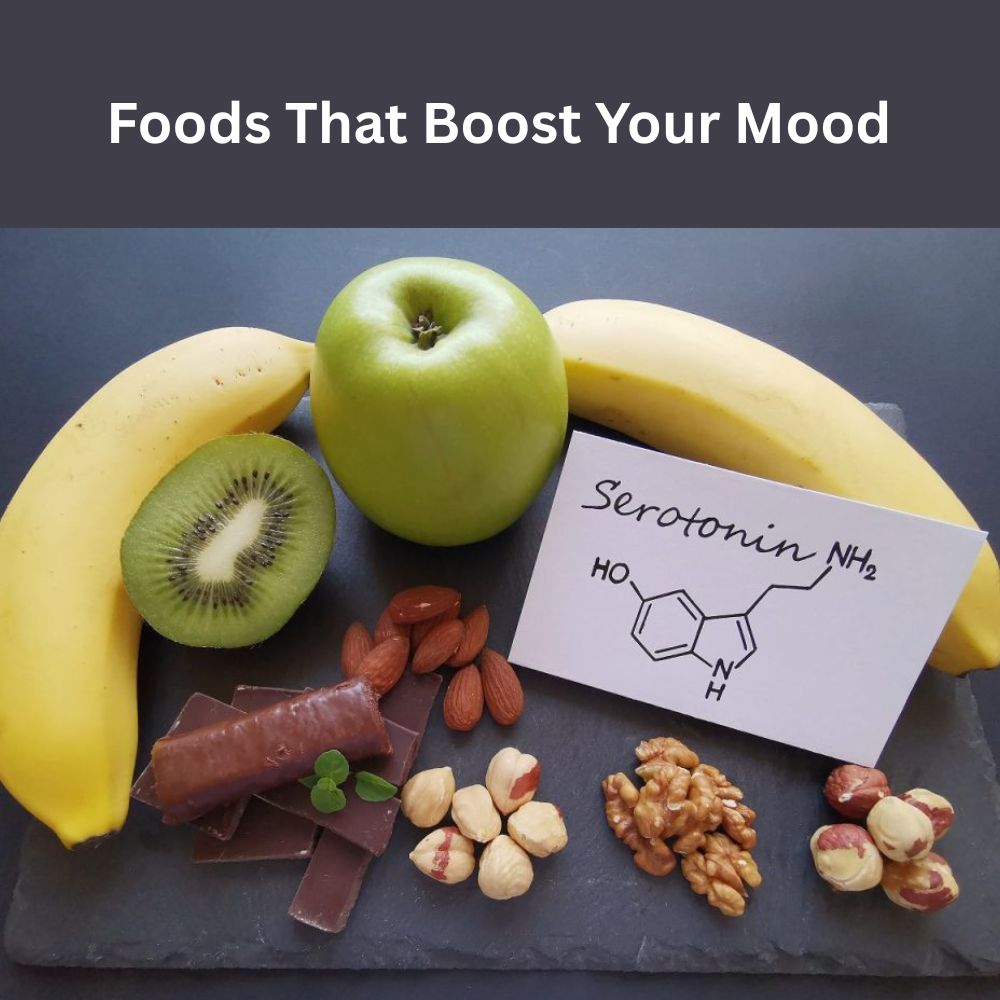Gut-Brain Connection: How Food Shapes Your Mood
Introduction
We usually conceive of mood as a process stemming from the mind, however, the reality is far more complicated — it runs all the way to the gut. The foods consumed each day fuel the body as well as our emotions, focus and energy. As scientists have started to term the gut our "second brain," the interplay with our mind is neither simplistic nor arbitrary — the gut communicates with our mind via an incredibly complex web of nerves and chemicals. When the gut is healthy and balanced, typically mood will follow suit. When it is out of balance that often translates into anxiety, fatigue, or irritability.

The Science of the Gut-Brain Axis
The gut and brain communicate through a profound two-way communication system known as the gut-brain axis, which is an incredible network that connects your digestive system to your central nervous system. This link travels through the vagus nerve, which is in constant communication, sending messages back and forth, and influencing aspects of your life, such as hunger and your emotions. The remarkable part about this link is that nearly 90% of serotonin, the hormone responsible for stabilizing mood, happiness, and well-being, is made in the gut, not in the brain. So when digestion is off, our emotional state often follows.
When we experience stress, inflammation, or a poor diet, it can cause an unfavorable impact on the gut-brain link, leading to unpredictable moods, anxiety, or sluggishness. When we take care of the gut through nourishment, digestion thrives and can lead to improved emotional health, cognitive thinking, and better sleep. Understanding this science leads us to an important distinction: mental well-being is not just within the mind; it begins with the way we nourish and treat the gut every day.
The Impact of Microbiome on Mental Well-being
Your digestive system is home to an entire world of microorganisms known as the gut microbiome—a staggering collection of trillions of bacteria, fungi, and other microbes that are silently affecting your all-around health and well-being. In addition to assisting with digestion, these tiny organisms help your body regulate your immune system, produce vitamins, and even contribute to the way your brain functions. Research has shown that the gut microbiome interacts with the body and influences aspects of mood and emotional stability by impacting neurotransmitters such as serotonin and dopamine.
When gut bacteria are diverse and balanced, they can support a sense of calm, ability to focus, and resilience to stress. Alternatively, when harmful bacteria overpopulate, inflammation and chemical disturbance may take place, leading to anxiety, depression, and brain fog. While this sounds overwhelming, our gut microbiomes are within our control and can change depending on our food choices, and routines. Feeding your body a diet high in fiber, fermented foods, and nutrient-dense, plant-based foods promotes good gut bacteria to flourish, and is silently enhancing your digestive and emotional health from the inside out.

Foods That Boost Your Mood: What to Eat for a Happier Gut
What you eat strongly influences your gut and your mood. Including probiotic foods like yogurt, kefir, kimchi, or kombucha into your meals can help get beneficial bacteria into your gut to improve digestion and the production of serotonin. Prebiotic foods, like bananas, garlic, onions, and oats, can be considered food for the good bacteria and help them grow in your gut. Omega-3 fatty acids can reduce inflammation and improve brain function; good sources are salmon, walnuts, and flaxseeds. Don’t forget the powerful impact of colorful fruits and vegetables, which are full of antioxidants to help combat stress and improve brain health, as well! Hydration counts, too. Even mild dehydration can affect your ability to focus and also your mood. Eating slowly and mindfully helps your body absorb nutrients and helps promote a sense of calm to your nervous system. Eventually, these foods you’re exposed to on a consistent basis will lead to considerable improvements in energy, mood, and emotional regulation, as well as keeping your gut happy.
Foods and Behaviors That Disrupt Your Gut-Brain Connection
While some foods are supportive of your gut, there are others that can cause disruption to it—and ultimately your mood. Diets that contain a lot of refined sugar, processed snacks, or foods that are fried can negatively impact the healthy bacteria in the gut, leading to inflammation and a dullness of energy. Yucky gut health can also be caused by artificial sweeteners, or too much caffeine; both of these disrupt the lining of the gut, leading to air in the belly and irritability.
Alcohol is suspect behavior as well. It may help you feel relaxed for a short period, but over time it depletes good bacteria and stops serotonin production. Diet matters, but behaviors are just as important. Sustained stress, poor sleeping habits, or going too long without eating, all create disruption to your gut-brain connection. Inflammation overload in the gut is distress communication to the brain, and you’ll often feel anxiety or a sense of fatigue. The good news with this information is that small changes can go a long way; this means eating whole foods, getting adequate rest, or managing stress to help improve your gut health quickly, as well as your mental clarity and ability to be settled emotionally.
Conclusion
The connection between our gut and brain is stronger than we realize- what we eat, really affects how we think and feel. When we nourish our gut, we feel calm in our minds, steady in our energy, and balanced in our emotions. But if we fail to eat well, our energy is depleted or we are anxious. By choosing whole, nutrient-dense foods and mindful habits, we have the ability to connect our body with our mind. Ultimately, good food is not just fuel, it’s self-care for our soul and our gut.
